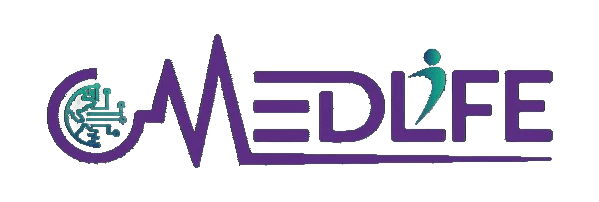What Are Modifiers in Medical Coding?
Modifiers in medical coding are two-character additions, either numeric or alphanumeric, appended to CPT (Current Procedural Terminology) and HCPCS (Healthcare Common Procedure Coding System) codes. They serve as clarifiers, providing additional context about the medical service or procedure performed without altering its core definition. Modifiers indicate specific circumstances, such as whether a service was provided on both sides of the body, was repeated, or involved a higher level of complexity than usual. These codes play a pivotal role in ensuring accuracy in claims and enabling proper reimbursement.
For instance, when a physician performs a procedure on both knees during the same session, a modifier helps denote the bilateral nature of the service. Similarly, if a procedure requires extra time or unique circumstances, the modifier ensures the claim reflects the complexity accurately.
Why Are Modifiers Important in Medical Coding?
Modifiers are essential for several reasons. Their correct use ensures that medical services are billed accurately, reducing the likelihood of claim denials and audits. They clarify specific scenarios, such as multiple procedures during one session, bilateral procedures, or services performed under unique circumstances. By capturing this additional information, modifiers facilitate proper reimbursement, improve workflow efficiency, and enhance the overall accuracy of medical billing.
Key Benefits of Using Modifiers
- Accurate Claims Processing: Modifiers eliminate ambiguities in claims, ensuring payers understand the specific circumstances of a service.
- Improved Reimbursements: They help healthcare providers receive fair compensation for services, especially when additional complexity is involved.
- Reduced Claim Denials: Correctly applied modifiers lower the risk of claim rejections due to incomplete or unclear information.
- Compliance with Regulations: They support adherence to healthcare coding standards like CPT and HCPCS guidelines.
Types of Modifiers in Medical Coding
Level I Modifiers (CPT Modifiers)
CPT modifiers are numeric and maintained by the American Medical Association (AMA). These modifiers clarify the professional or technical aspects of a service. Examples include:
- Modifier 25: Indicates a significant, separately identifiable evaluation and management (E/M) service performed on the same day as another procedure.
- Modifier 59: Used to designate a distinct procedural service performed during the same session.
- Modifier 50: Represents bilateral procedures.
Level II Modifiers (HCPCS Modifiers)
HCPCS Level II modifiers, managed by the Centers for Medicare and Medicaid Services (CMS), are alphanumeric. They are often used for Medicare and Medicaid claims, covering services like ambulance rides or durable medical equipment. Examples include:
- E1: Indicates a procedure on the upper left eyelid.
- GT: Denotes services delivered via interactive telecommunication systems.
- TC: Represents the technical component of a service.
Commonly Used Medical Modifiers and Their Applications
Modifier 24: Unrelated E/M Service During Postoperative Period
This modifier is used when a provider performs an evaluation and management service unrelated to a surgery during its global postoperative period. For example, if a patient undergoes surgery for a hernia and later visits the physician for an unrelated skin condition during the recovery period, Modifier 24 applies.
Modifier 26: Professional Component
When a procedure has both professional and technical components, Modifier 26 is used to indicate the professional aspect, such as a physician interpreting X-ray results.
Modifier 59: Distinct Procedural Service
This modifier is applied when procedures that are normally bundled together are performed as separate services. For example, a physician may conduct separate procedures on different anatomical sites during the same session.
Modifier 76: Repeat Procedure by the Same Physician
Used when a physician repeats the same procedure on the same day for a patient. For instance, if an initial X-ray is inconclusive and needs to be repeated, this modifier is appended.
Modifier 95: Telehealth Services
Indicates services rendered via an interactive audio and video telecommunication system, particularly relevant for telemedicine consultations.
When to Use Modifiers in Medical Coding
- Multiple Procedures: Modifiers clarify when multiple services are performed during a single visit, ensuring each is billed correctly.
- Bilateral Services: When a procedure is performed on both sides of the body, a modifier such as 50 is used.
- Unusual Circumstances: If a procedure requires additional time or resources due to complications, modifiers capture this complexity.
Best Practices for Accurate Modifier Use
Understand Guidelines
Coders should familiarize themselves with CPT and HCPCS manuals, as these provide specific rules for using each modifier.
Check Payer Policies
Insurance companies often have unique requirements regarding modifier usage. Regularly reviewing payer guidelines minimizes the risk of denied claims.
Avoid Overuse
Modifiers like 59 are commonly overused, leading to audits. Apply them only when fully justified by the documentation.
Ensure Detailed Documentation
Comprehensive medical records support the use of modifiers, ensuring that claims withstand scrutiny.
Common Errors in Modifier Application and How to Avoid Them
- Misuse of Modifier 25: Ensure that the E/M service is distinct and significant from the procedure performed on the same day.
- Incorrect Placement: On electronic claim forms, pricing modifiers must precede informational modifiers to avoid processing delays.
- Failure to Document: Always provide clear documentation to justify modifier use, particularly for high-risk or commonly audited modifiers.
The Impact of Modifiers on Reimbursements
Modifiers play a pivotal role in influencing reimbursement rates. For example:
- Bilateral Procedures: Using Modifier 50 ensures that payers recognize and reimburse for procedures performed on both sides of the body.
- Telemedicine Services: Modifiers like GT or 95 are crucial for ensuring proper reimbursement for virtual consultations.
- Complex Cases: Modifiers such as 22 (Increased Procedural Services) ensure that providers are compensated for the additional effort and resources required in complex cases.
Emerging Trends in Modifier Usage
As telehealth continues to grow, modifiers like 95 and GT are gaining prominence. Additionally, the increased adoption of AI in medical billing systems is helping coders identify the correct modifiers more efficiently, reducing human errors and improving claims accuracy.
Conclusion
Modifiers in medical coding are indispensable for accurate billing and fair reimbursement. They provide critical details about the services rendered, ensuring that healthcare providers are compensated appropriately while maintaining compliance with coding standards.
At MedLife, we are dedicated to helping healthcare organizations streamline their medical billing processes. Our expert team stays updated on the latest coding practices and regulations to ensure you receive accurate reimbursements and maintain compliance. Partner with us today and take the first step toward seamless and efficient medical billing. Contact us to learn how we can support your practice’s unique needs.


